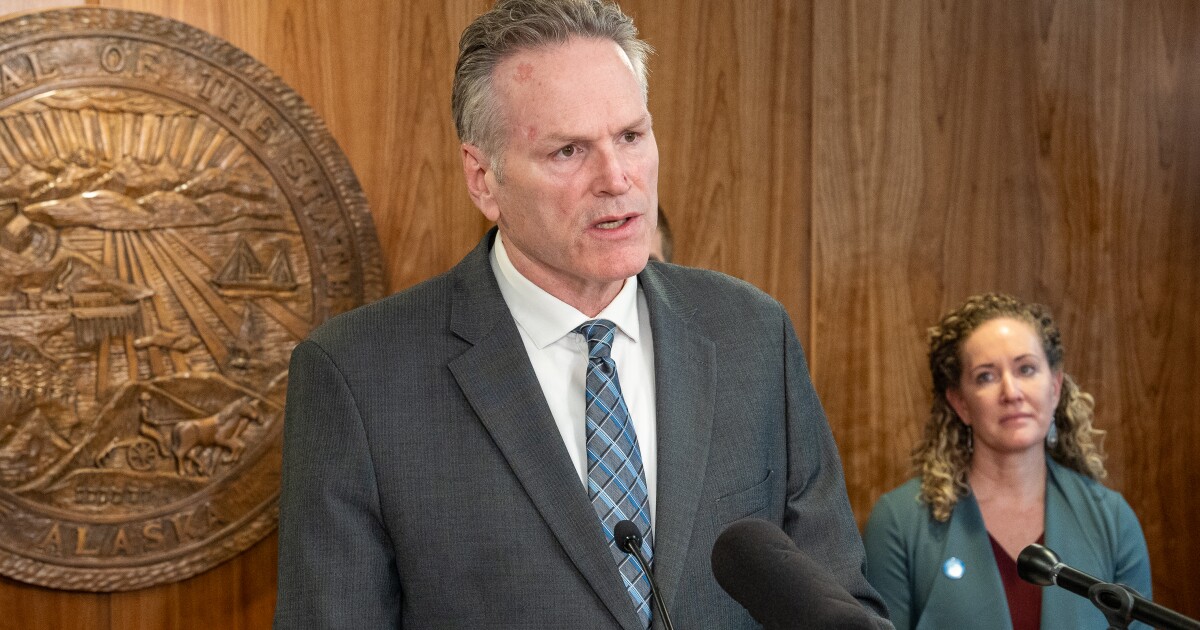Gov. Mike Dunleavy told lawmakers Wednesday he had vetoed a bill that would have sharply limited payday loans in Alaska.
Senate Bill 39, which passed the Legislature on a bipartisan vote of 38 to 22, looked to cap interest rates for so-called “deferred deposit advance” loans at 36%. Backers of the bill, including the Alaska Public Interest Research Group, a nonprofit consumer advocacy organization, say it’s an effort to curtail what they describe as “predatory” loans.
“We know that payday loan customers in Alaska are taking out over five payday loans per year, even though they’re marketed as one-time emergency assistance,” Claire Lubke, the group’s economic justice lead, said in an interview. “We know that this causes cycles of debt in which people are taking out one loan and then another, trying to get out from what they originally borrowed.”
Sen. Forrest Dunbar, D-Anchorage, sponsored the bill, which passed along caucus lines in the Senate. Three minority Republicans joined the Democrat-heavy multiparty coalition controlling the House to pass the bill in the lower chamber.
In a presentation to lawmakers, the group said the fees for payday loans equate to interest rates in the hundreds of percent per year. State law allows lenders to charge up to $15 per $100 borrowed, up to $500, typically for two or four weeks. Lenders can roll over the balance into new payday loans twice.
Opponents of the bill say it would unnecessarily limit consumers’ choices and reduce loan options for borrowers with poor credit.
Andrew Duke leads the Online Lenders Alliance, a financial technology group that opposed the bill.
“The proponents were trying to paint a picture that if you enact this bill and put more restrictions in place, lenders will just keep making loans to the same borrowers at lower cost. That is patently false,” he said in an interview.
Dunleavy declined an interview request but made a similar case in his veto message.
Duke also said the bill could restrict small businesses’ access to credit, though public interest researcher Lubke said the bill would not affect commercial lending. The head of the state Division of Banking and Securities did not immediately return a phone call and email seeking comment.
A variety of other states have similar limits on payday lending. The federal government also restricts it for active-duty military members.
Lawmakers can override Dunleavy’s veto with a two-thirds majority vote. That could prove difficult, since proponents would have to pick up at least two more Republican votes to override the veto.







